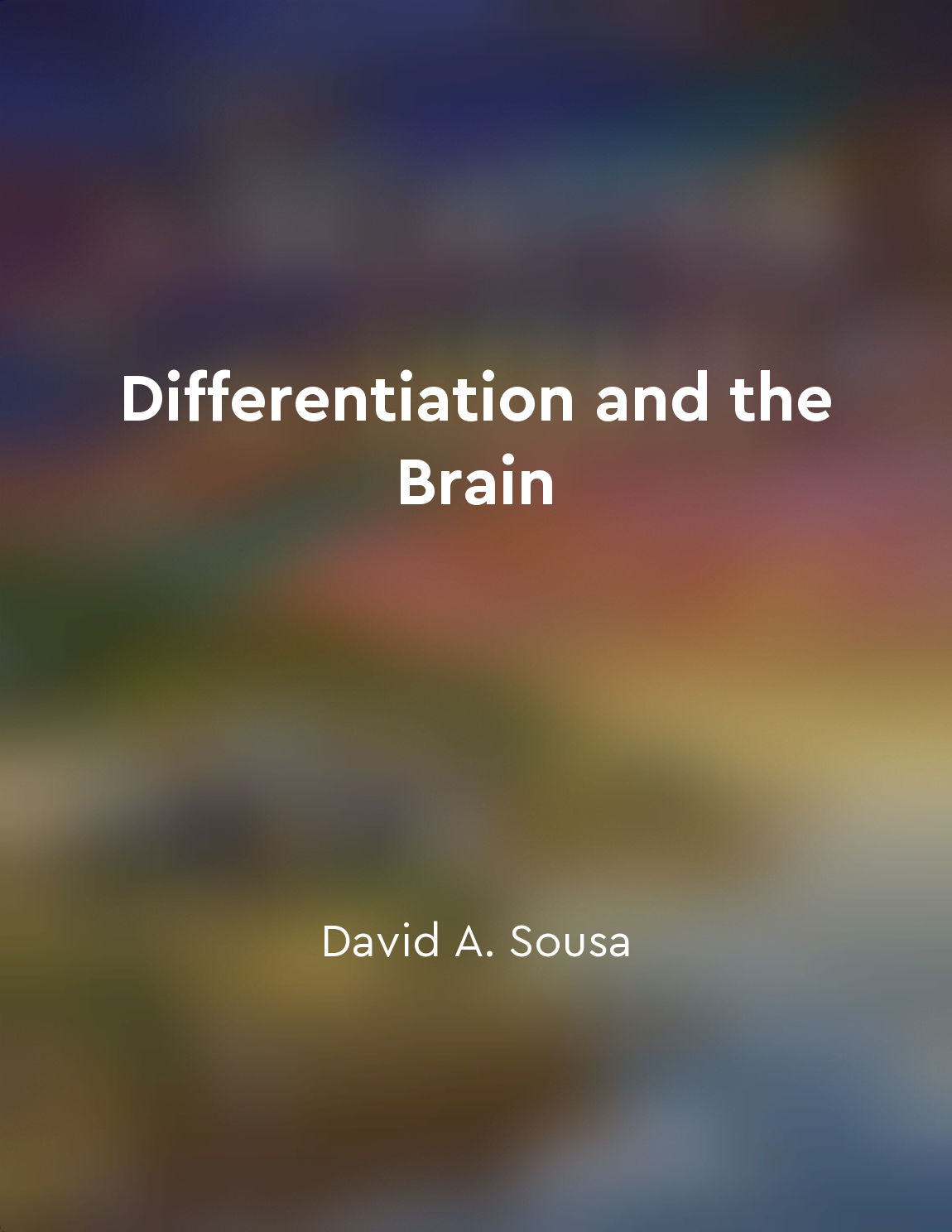Differentiation empowers students to reach their full potential from "summary" of Differentiation and the Brain by David A. Sousa,Carol A. Tomlinson
Differentiation is a powerful tool that allows educators to meet the diverse needs of students in the classroom. By tailoring instruction to individual students, teachers can provide the support and challenge necessary for each student to reach their full potential. This approach recognizes that students come to the classroom with a wide range of abilities, interests, and learning styles. When students are given opportunities to learn in ways that align with their strengths and interests, they are more likely to engage with the material and make deeper connections. This engagement can lead to increased motivation and a greater sense of ownership over their learning. As a result, students are more likely to persist in the face of challenges and develop a growth mindset that allows them to continue to learn and grow. Differentiation also helps to create a positive classroom environment where all students feel valued and respected. By recognizing and celebrating the unique strengths of each student, educators can foster a sense of belonging and community within the classroom. This sense of belonging can lead to increased self-confidence and a willingness to take risks in learning. Furthermore, differentiation can help to address the achievement gap by providing targeted support to students who may be struggling academically. By identifying and addressing individual learning needs, educators can help all students make progress and experience success. This targeted support can help to level the playing field and ensure that all students have the opportunity to reach their full potential.- Differentiation is a powerful tool that can empower students to reach their full potential. By tailoring instruction to individual students, educators can create a more engaging and inclusive learning environment where all students have the opportunity to succeed. Through differentiation, students can develop the skills and mindset necessary to become lifelong learners and reach their academic and personal goals.


